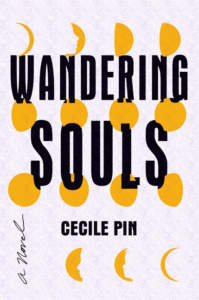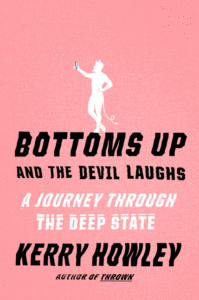
Catherine Lacey’s Biography of X, Matthew Desmond’s Poverty, By America, and Sebastian Barry’s Old God’s Time all feature among the Best Reviewed Books of the Week.
1. Old God’s Time by Sebastian Barry
(Viking)
8 Rave • 4 Positive
Listen to Sebastian Barry read an excerpt from Old God’s Time here
“beautiful, tragic book … Barry is a poet and playwright as well as a novelist, and lyricism and drama jostle in nearly all his sentences, many of which are stuffed to bursting … The novel’s ending is a dramatic exploration of the possibility of atonement. One cannot say for sure whether his putative redemption is ‘verifiably’ real or fantastical, but there can be no doubt about how Tom feels. The final pages are ravishing.”
–Adam Begley (The Atlantic)
2. Biography of X by Catherine Lacey
(Farrar, Straus and Giroux)
6 Rave • 4 Positive • 1 Mixed
Read an excerpt from Biography of X here
“Criminally good … Delightful … Lacey’s ingenious and playful methods enact the same shape-shifting quality that this novel explores. She seamlessly alters and repurposes the work and words of countless artists and writers … Lacey plunges us into the most pressing contemporary conversation about the performance of the self, means of representation, commodification of identity, and how identity markers are often fixed, though identity itself is not static.”
–Ayden LeRoux (BOMB)

3. Wandering Souls by Cecile Pin
(Henry Holt & Company)
2 Rave • 5 Positive
“Moving and meticulously researched … A piercing saga of innocence being rapidly replaced by hard-won experience … Wandering Souls is written in clean, precise prose that is both highly readable and restrained, imbuing the plot with a clear-headed narrative acumen impressive for a debut novel. If the matter-of-factness occasionally veers into slightly flat affect, because of a self-effacing style and refusal to capitulate to sentimentality, this seems due to Pin’s sensitive handling of historical material rather than a dearth of empathy or genuine emotion. On the contrary, Wandering Souls is a poignant saga with its grieving, beating heart firmly in the right place, and heralds the arrival of an ambitious and promising new talent.”
–Sharlene Teo (The Guardian)
**
1. Poverty, By America by Matthew Desmond
(Crown)
6 Rave • 4 Positive
“A lucid and scathing explanation for one of our nation’s abiding injustices … Desmond’s new book is primarily a polemic. It is impeccably researched and bolstered by seventy-six pages of dense notes—those seeking further source material will certainly find it—but Desmond wishes to influence a broad swath of American readers, not an academic coterie … Desmond’s book makes an urgent and unignorable appeal to our national conscience, one that has been quietly eroded over decades of increasing personal consumption and untiring corporate greed.”
–Claire Messud (Harper’s)

2. Bottoms Up and the Devil Laughs: A Journey Through the Deep State by Kerry Howley
(Knopf)
3 Rave • 3 Positive
Watch an interview with Kerry Howley here
“Howley manages to push beyond partisan hack work to lay bare the flaws or biases in everyone’s read on Reality … She illustrates the ways in which the raw data of someone’s life can be culled into a story they didn’t know they had told … By the time Howley arrives at the story of Winner’s leak, she has methodically primed the reader to see Winner not as a scandal, but as merely one member of a special, if frequently irritating, demographic … Howley’s capacity for incisive empathy extends to those whom most would dismiss as kooks.”
–Tarpley Hitt (Bookforum)

3. The Undertow: Scenes from a Slow Civil War by Jeff Sharlet
(W. W. Norton & Company)
3 Rave • 1 Positive
“A yearslong, one-man anthropological expedition into the heartland of the far right … a riveting, vividly detailed collage of political and moral derangement in America, one that horrifyingly corresponds to liberals’ worst fears … Sharlet’s authenticity and urgency as an essayist stems from his spooked, vulnerable persona, which confers on him a moral credibility that an ostensibly neutral writer would lack … Jeff Sharlet doesn’t propose a practical solution to the problem, but this book is his way of sounding the alarm.”
–Joseph O’Neill (The New York Times Book Review)

